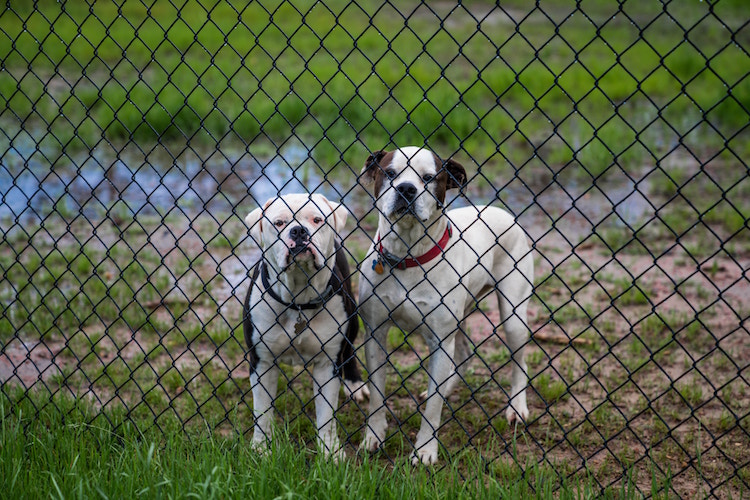You Can Help A Rescue Agency Without Fostering
There are many reasons you may not want to foster dogs. Your reasons are all valid, my friend. Fostering isn’t for everyone and you absolutely need not feel like the only way to volunteer for a rescue agency is to foster an animal.
Besides, there are many ways you can volunteer for a rescue agency or animal welfare agency and make a big impact! Read on to learn many ways rescue agencies need volunteers. Most definitely, there’s a way you can help!
1. Transport
If you have flexibility in your schedule and reliable transportation, you will be a wonderful resource to rescue organizations by volunteering as a transporter! How fun is it to take a dog for a ride? Furthermore, it is a great way to spend time with rescue dogs, interact with foster parents, and learn a little about how rescue operations work.
Rescues need transporters for the following needs:
- Pick up a dog from a shelter and transport to a veterinarian, agency, or foster home.
- Assist a foster home by taking their foster dog to/from the veterinarian for evaluations or treatments. For example, a dog is recently spayed and now ready to discharge home. Because the foster cannot pick the dog up from the vet, you become a big help!
- Participate in long-distance transportations by driving a “leg” of a multi-stop transport route.
- Deliver food and supplies.
- Transport dogs to adoption events (may require you to be the dog’s handler, too).
- other, unique and/or one-time trips.
How to be a good transporter?
First, be a good driver! It goes without saying, a pretty clean driving record is desirable.
Next, be dependable, timely, and willing to transport not only a dog but information as well (paperwork, verbal messages from the vet, for example).
Finally, know how to safely transport a dog in a vehicle (For example, use crates, seat belts/seat harnesses) and commit to following the agency’s rules and guidelines for safe transport.
2. Conduct Home Visits
Do you possess a critical eye? Do you focus on details? Maybe you worry a bit (do you ask a lot of “what if” questions)? If so, you may be perfect as an expert home visit volunteer, even if you are shy and introverted (I am).
Home visits or home checks are usually completed before an agency places a dog in an adoptive home. These visits provide an ‘eye’ into the life of a dog the home. The number one question I ask myself is, “What will it be like for a dog to live in this home, with the existing pets and these people?” The second question is, “Would I leave my dog here for them to caretake?” These two overall questions guide my observations and interview.
How To Do A Home Visit
As a volunteer for home visits, you will be asked to observe the house and grounds for any safety concerns. If an agency identified a dog in mind for a particular home, you’ll likely look for particular details. For example, when I do home visits for blind or vision impaired dogs, I look for ways a blind dog might get hurt in the home or on the grounds, and I may talk with the future family about ways to remove or manage those hazards. Otherwise, I assess the home for all situations and any dog, any breed.
Additionally, you’ll report on the condition and behavior of the other pets in the home. Dogs that are unkempt or unruly may be a detail the rescue wants to know about! Out-of-control dogs with no human leadership may develop conflicts in the future. Furthermore, humans who are heavy-handed to their own dogs may not need to adopt a rescue dog.
Finally, the agency is going to want your impression of the people you just met and will want to know if you have any concerns about their skill, commitment, or understanding. Part of rescue work is providing education! An agency should want to know if any teaching is needed to facilitate a good adoption placement.
Home Visit Experts Are Needed!
I think signing up to be a home visit volunteer for a rescue agency allows you the opportunity to hone a special skill and develop a reputation for providing a factual and reliable report. Good home visit reports provide an agency with important information useful in making placement decisions.
I cannot tell you the instances where an applicant looked and sounded great on paper and over the phone. The home visit revealed an important unknown. In contrast, I’ve had a lousy adoption placement because a volunteer withheld (or didn’t discover) important safety information. Luckily, that dog came back into rescue.
It’s a pretty important and rewarding job.
Consider becoming an expert home visit volunteer! You can even help multiple rescue agencies! How cool is that.
3. Write Content
Rescue agencies need volunteers with good writing skills! Writers provide benefit in the following ways:
- Website content
- Writing content for manuals, both foster manuals, and adoption manuals
- Social media posts
- Writing foster dog biographies for posting to websites and pet placement platforms
- Writing content for press releases, blog posts, newsletters
All of us can write, “Max is a 5-year-old, 12 pound Chihuahua mix, house trained, crate trained, good with dogs & cats, up to date on shots and neutered”, but this list of factoids puts Max in a sea of about 5000 other Chihuahua mixes across the country. He doesn’t stand out at all. Is every available pet special and unique? Of course they are!
4. Photograph Dogs!
Along with needing volunteers who can write a great biography, rescue agencies and shelters need volunteers who know how to take a good photograph.
We know it’s true:
A good photograph makes an impact. It motivates. Inspires. Moves. It is its own call-to-action.
A good photograph helps a rescued pet get adopted faster than a poor photograph.
Be a Volunteer Photographer
Even with my fancier smart phone, I am not great at taking a photograph, mostly because I don’t have the patience required to take lots of bad photos just to get one or two good ones of a moving dog. Ha! I do, however, have friends that are so much better (and patient!) at photographing animals.
Take Photos
If you have super-skills with the camera feature on your smart phone OR you happen to be a photographer with more advanced equipment, see if your area shelter and/or rescue agency needs your help! Pretty please? The dogs (and cats, and other rescue animals) need your help!
Next to writing bios, foster parents can feel anxious about taking photos that will be posted on social media for the multitudes to see. Give them a hand and volunteer to take photos for them. They will be relieved, I promise!
Teach an Inservice Class on Smart Phone Photography!
I’m positive my smartphone camera has features I don’t know about. Positive. I’m too lazy and busy to learn my phone. It’s why I rope my photography friends into taking pictures for me! Hehe!
Here’s an idea! Throw a gathering with some easy snacks and do a mini-education session on how to photograph animals using a smart phone.
Don’t forget about videography, too. Most social media platforms place video content higher up on their algorithms. Meaning, videos are seen more often than photos. Foster families would love to learn how to improve their use of their phone’s video camera!
5. Be A Mentor For A New Foster Home
Each time I fostered a dog with a different illness, condition, or behavior, I sought out a mentor. With each ‘new’, I asked tons of questions. With access to someone knowledgeable and experienced helped ease my worry and boosted my confidence.
Sometimes, I needed to find experts outside the rescue agency. I sought guidance from wherever I could find it. I found mentors through agencies specializing in care for cleft palate puppies, support groups who were knowledgeable about inflammatory bowel disease, seizure support groups, among others.
Mentors can help on-board brand new foster homes. There is so much to learn! From the basics of issues such as introductions to recovery from spay/neuter surgery. Mentors are important for helping guide a foster home through the anxiety of caring for a dog undergoing heartworm treatment. If you have expertise in caring for dogs with seizure disorders, chronic illnesses, contagious and infectious diseases, senior foster homes (with all the aging conditions those pets present), your skill is needed, even as a coach. Do you know about whelping and raising puppies? A new foster may feel quite overwhelmed as they prepare for the arrival of a litter of puppies. What a relief to have you on standby!
If you have expertise – consider donating your time and ear and knowledge to an inexperienced but eager-to-learn new foster home. You will help make a difference in the care of foster dogs, will help advance the skill and confidence of a foster home, and you will help maximize the use of the agency’s donor dollars.
6. Fundraising/Events/Constituent Relationships
I don’t think there’s a rescue agency or even a government-run animal control facility that doesn’t do some sort of outreach. It’s a big part of animal welfare activity and volunteers are needed!
Social Media
Social media is at the heart of animal welfare outreach. It is the fastest way for an agency to get their word out to the world.
Despite the changes in algorithms imposed by the likes of Facebook, Instagram, and even Pinterest, social media is still more efficient at getting an agency’s message across, AND it is a key driver of an audience to the agency’s website. Customers efficiently seeking to volunteer, adopt, foster, and donate don’t do so on social media, but on the website.
Any rescue agency looking to build their audience is using social media. And that requires volunteers!
Facebook: An agency may need volunteers to answer messages, create engaging posts, and manage any Facebook conflicts in a professional manner.
Facebook groups – Different from a Facebook business page, facebook groups build community through engagement. Well-run facebook groups have group rules and require moderators with professionalism and even-tempered personalities.
Instagram is all about engaging photographs and building an audience, fast! It is also a driver to the agency’s website. If you love hanging out on Instagram and have a knack, see if your favorite animal welfare agency wants an Instagram account!
If an agency uses Pinterest, they need someone who knows how to design attractive pins. Do you have a flair for graphic design? See if your favorite animal welfare agency needs help with a Pinterest account!
Twitter: Does everyone tweet? It is certainly a way for an agency’s information to go viral (hopefully in a positive way!) Maybe there’s a place for volunteer tweeter (is that what you call them?) in your favorite animal welfare agency!
Events
For me to try and list all the ways an agency can design an event for the purpose of awareness and fundraising, it would require a blog post all on its own. Events for a rescue run the gamut:
- vendor booths at a spring outdoor festivals
- adoption events
- silent auctions
- annual cook-offs
- fun-runs
- community yard sales
- online auctions
- online contests and games of chance.
Your ability to design an event is limited to your creativity, resources, and municipal laws. (games of chance are bound by a set of rules in some counties and states.)
Most agencies plan a few events during the year, and it does take more than a pair of hands to plan and execute a successful event. If you want to volunteer for a rescue agency in this capacity, inquire!
Constituent Relationships
“It is easier to keep a customer than to recruit a new customer.”
I’m not sure who said that, but it is true, even in rescue.
Indeed, a donor becomes a donor because they heard about an agency’s need and good work. The agency that keeps donors up to date on the agency’s work retains (and grows) donors.
A volunteer remains a volunteer especially when regularly engaged through communication, involvement, and to some degree, recognition.
An adopter becomes a repeat adopter when they have a successful placement and feel connected to the rescue.
The easy way to accomplish all three is through nurturing relationships.
Ways to help an agency nurture relationships with constituents:
- letter writing
- phone conversations
- newsletters/blogs/vlogs
- storytelling/sharing adoption updates
- foster parent spotlight
- estate planning
Other Ways You Can Help A Rescue Agency
Rescue agencies need specialists in many different roles. When you think about it, a rescue agency is a business with many needs beyond that of foster home recruitment.
Are You:
- an attorney?
- an accountant?
- a bookkeeper?
- a website developer?
- an insurance professional?
- a marketer?
- a grant writer or researcher?
- a graphic designer?
- product developer?
- a merchant?
- a groomer?
- a force-free dog trainer or animal behaviorist?
Your expertise is invaluable to a rescue agency. Consider when, where, and how you might contribute to a rescue agency. They sure do need your help.
What other roles or volunteer opportunities are available through a rescue agency or animal welfare agency? I bet there are some I didn’t think about. Drop me a line and let me know!




